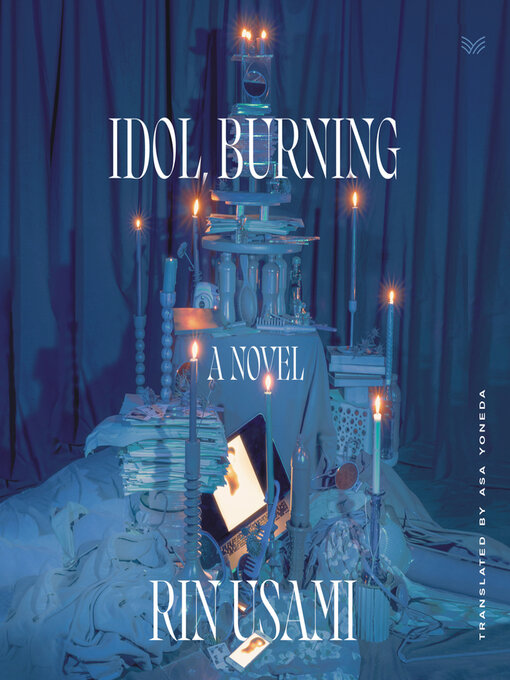""Akari's obsession is fatalistic and intense, and Usami's prose (translated by Asa Yoneda) renders it and the hold it has on her tenuous life ably and affectingly. . . . it will especially resonate with readers familiar with real-life superfandoms such as One Direction's at the height of its fame, down to details such as sought-after exclusive merch and hateful online comments sections. A short, engrossing novel that captures the essence of obsessive fandom." — Kirkus (starred review)
""What's impressive about this novel is the author's ability to empathize with Akari's all-consuming love for Masaki while showing just how damaging this relationship is to Akari and everyone around her. The book left me heartbroken yet hopeful, and excited for more Usami novels to come."" — NPR.org
"Haunting and sincere, Idol, Burning subverts and astonishes. Rin Usami balances humor, obsession, heartbreak, and sacrifice in her debut, crafting a story that's both enveloping and expansive. Usami's writing is thrilling and deft, and her novel illuminates the shadows cloaking our digital lives, leaving us with honesty and grace in equal measures. Idol, Burning is a barnburner and a prayer and a testament to the lengths that we'll go to reach for our dreams."—Bryan Washington, award-winning author of Memorial and Lot
The novel that lit the Japanese publishing world on fire: From a breathtaking up-and-coming writer, a twenty-first century Catcher in the Rye that brilliantly explores toxic fandom, social media, and alienated adolescence.
Akari is a high school student obsessed with "oshi" Masaki Ueno, a member of the popular J-Pop group Maza Maza. She writes a blog devoted to him, and spends hours addictively scrolling for information about him and his life. Desperate to analyze and understand him, Akari hopes to eventually see the world through his eyes. It is a devotion that borders on the religious: Masaki is her savior, her backbone, someone she believes she cannot survive without—even though she's never actually met him.
When rumors surface that her idol assaulted a female fan, social media explodes. Akari immediately begins sifting through everything she can find about the scandal, and shares every detail to her blog—including Masaki's denials and pleas to his fans—drawing numerous readers eager for her updates.
But the organized, knowledgeable persona Akari presents online is totally different from the socially awkward, unfocused teenager she is in real life. As Masaki's situation spirals, his troubles threaten to tear apart her life too. Instead of finding a way to break free to save herself, Akari becomes even more fanatical about Masaki, still believing her idol is the only person who understands her.
A blistering novel of fame, disconnection, obsession, and disillusion by a young writer not much older than the novel's heroine, Idol, Burning shines a white-hot spotlight on fandom and "stan" culture, the money-making schemes of the pop idol industry, the seductive power of social media, and the powerful emotional void that opens when an idol falls from grace, only to become a real—and very flawed—person.
Translated from the Japanese by Asa Yoneda.



